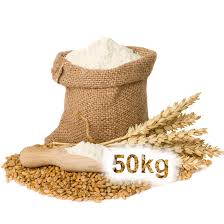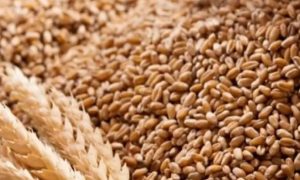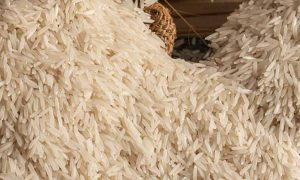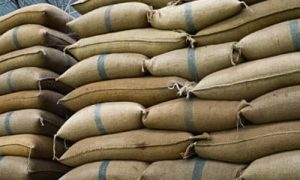Pakistan : Punjab’s wheat restrictions trigger domino effect

Punjab’s informal ban on interprovincial wheat movement has triggered flour shortages and price surges nationwide, with KP seeing a 68% increase. While authorities cite local food security, critics argue it violates constitutional trade rights and undermines deregulation. Farmers and millers warn it may reduce wheat production and prompt costly imports.
LAHORE: Punjab’s unannounced ban on the interprovincial movement of wheat has ignited a new crisis, causing a severe flour shortage and soaring prices in other provinces.
The move has drawn sharp criticism from politicians and flour millers who argue it violates constitutional rights and a recent deregulation agreement.
While Punjab officials denied a formal ban, they acknowledged establishing checkpoints to curb what they termed “unusual” wheat movement. Critics, however, argued that these measures are against the spirit of a deregulated market.
The ban has been met with strong condemnation from other provinces, particularly Khyber Pakhtunkhwa and Sindh, which heavily depend on Punjab’s wheat supply.
The All-Pakistan Flour Mills Association (PFMA) has labelled the policy unconstitutional, citing Article 151 of the Constitution, which guarantees the freedom of trade and commerce across the country.
According to Riazullah Khan, chairman of the Punjab Flour Mills Association, checkpoints at the province’s exit points are blocking the transport of wheat and flour to other regions. He said that these actions run counter to the deregulation policy, which promised unrestricted trade and movement of wheat.
As a result of the restrictions, flour prices have skyrocketed in provinces like KP, where a 20kg bag of flour is now selling for up to Rs2,800, compared to around Rs1,800 in Punjab. This has placed an unbearable burden on low-income families already struggling with inflation.
KP Governor Faisal Karim Kundi publicly condemned the ban, calling it a “blatant violation of Article 151” and a “serious breach of national unity”. The KP Assembly has also adopted a unanimous resolution denouncing Punjab’s restrictions on wheat supply, citing a 68 per cent hike in flour prices in the province.
It is not a new phenomenon but a recurring issue that resurfaces whenever there is a shortage of wheat, often caused by natural disasters such as floods or by low production due to inadequate or poor-quality farm inputs, particularly urea and DAP fertilisers. The country witnessed the same issue in 2020, 2022 and 2023.
The problem deepened when Punjab, which traditionally procured and stocked more than four million tonnes each harvest to stabilise prices and ensure year-round availability of grain, withdrew from this role under international agreements.
Govt stance vs market realities
Punjab officials maintained that the restrictions are a necessary measure to ensure food security within the province and to combat hoarding and smuggling.
They argued that preventing wheat from being diverted to feed mills or sold to other provinces at inflated prices is essential for ensuring a stable supply for local consumers.
They also pointed to the National Finance Commission award, under which each province is responsible for its own food security and should not blame other federating units for shortages.
However, millers and market analysts argued that this policy is counterproductive. They contended that the ban creates an artificial shortage, leading to market instability and driving up prices nationwide.
The Pakistan Institute of Development Economics (PIDE) has consistently advocated for a deregulated wheat market, arguing that bans on interprovincial movement only create inefficiency and corruption.
Majid Abdullah, president of the Progressive Flour Millers Group, warned that if administrative measures to regulate the so-called deregulated market continue, the private sector will be reluctant to invest in the wheat sector next season.
This could force the government to import grain at much higher rates than what is available locally. Abdullah highlighted the irony of the situation, noting that Punjab authorities had previously encouraged private investment, even offering bank loans for the purpose of purchasing large quantities of grain during harvest season.
He added that without proper legal protection, the deregulation process remains uncertain and vulnerable to being reversed by a future government, which could make private investment in storage facilities worthless.
“Stability of the market needs a consistent, thorough policy protected by a proper piece of legislation,” Mr Abdullah stated.
Farmers’ woes
The ban also has a ripple effect on farmers. While the government aims to secure a stable price for consumers, its actions are seen as a disincentive for farmers.
They may choose to plant other crops in the upcoming sowing season if they cannot get a fair price for their wheat, which could lead to a significant decline in domestic production and force the country to rely on costly imports.
Mr Abdullah cautioned that administrative efforts to control prices, especially with the next sowing season approaching, will discourage farmers who are already hesitant to plant wheat after failing to get good prices for their produce in the last two seasons.
The situation underscores a deep-seated tension between the government’s desire to control prices for the public and the free-market principles essential for a healthy agricultural economy.
The federal government, under pressure from affected provinces, is now being urged to intervene and restore the free movement of wheat to avert a full-blown food crisis.
To Read more about Wheat News continue reading Agriinsite.com
Source : Dawn

















